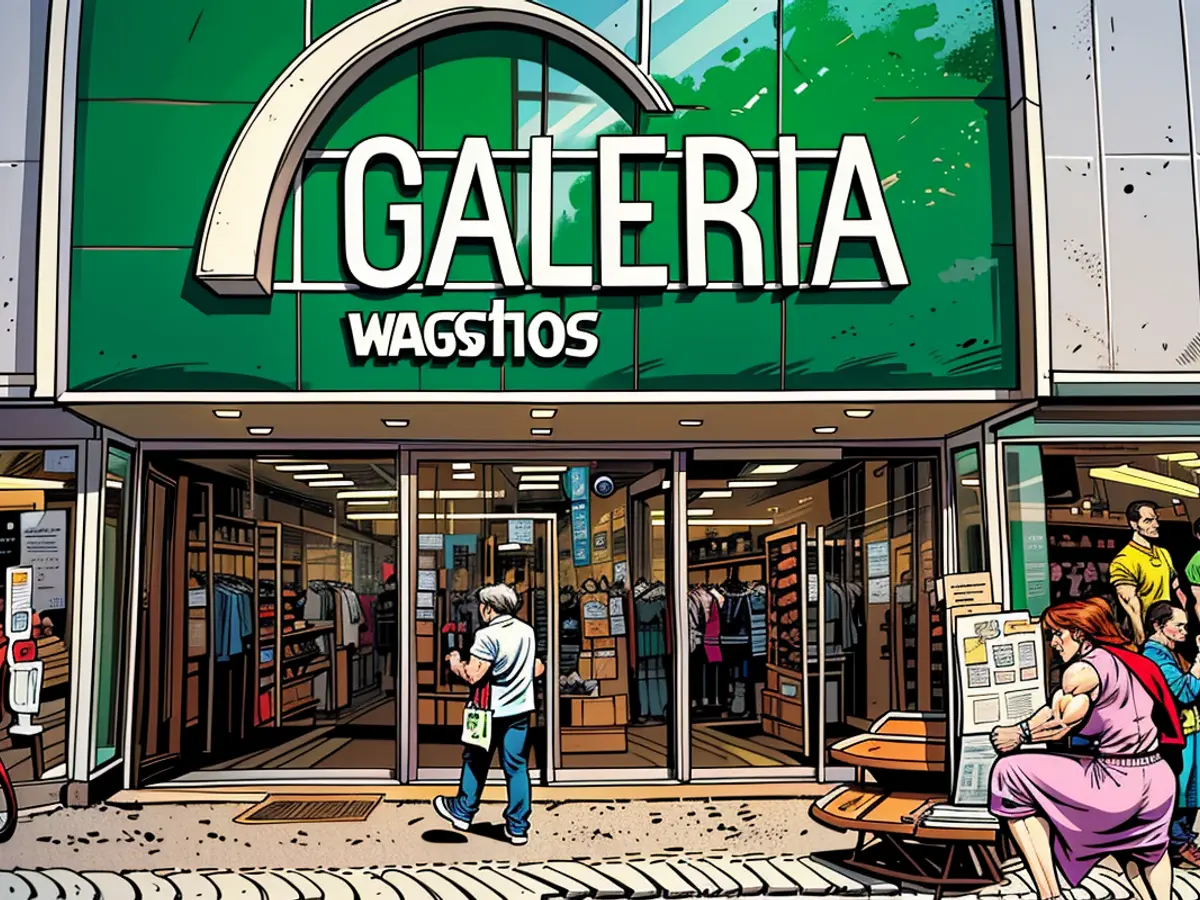Department store corporation - Tariff talks at Galeria: Verdi rejects company proposal
At the outset of wage negotiations at the department store chain Galeria Karstadt Kaufhof (GKK), the union Verdi rejected the company's proposal with firm rejection. "Anyone who wants to force through a cheap settlement in a pig race disregards the financially strained situation of people and their families at Galeria," said Verdi board member Silke Zimmer after the talks in Düsseldorf.
The company is wasting the opportunity to go into the future with well-trained and motivated specialists. "The plans of the so-called department store collective bargaining agreement presented are not a viable future concept for the department store chain, which is in its third insolvency proceeding, but rather a cost-cutting program at the expense of employees," criticized Zimmer.
Crisis leads to lower wages
Germany's last major department store chain has been in crisis for years, and employees have not been paid according to the retail industry collective agreement for a long time. Verdi had hoped that the company would pay according to the industry-wide collective agreement after the restructuring and that employees would then earn more money.
However, Galeria rejected this hope - the company wants to have its own, company-specific collective agreement instead. This should run for three years, include an eight percent wage increase, a one-time inflation adjustment premium of 600 euros, and a non-specified premium with which employees are to be involved in the success of their respective branches.
The ongoing insolvency proceedings are expected to be lifted by the end of July. The US investment firm NRDC and a participation company of entrepreneur Bernd Beetz are expected to become new owners from August 1. The number of stores is expected to decrease to 83 from the current 92, with around 12,000 employees remaining.
Industry-wide collective agreement has higher wages
Karstadt has not paid according to the industry-wide collective agreement since 2004, according to Verdi. GKK, on the other hand, has not paid the collective agreement wages company-wide since 2019. From Verdi's perspective, this was not an exit from the industry-wide collective agreement, but only a temporary separation.
According to Verdi, GKK employees currently earn on average 5,500 euros less per year than their colleagues in other retailers who pay according to the industry-wide collective agreement. If the Galeria wage offer were accepted and implemented, this difference would grow over the years and eventually reach around 9,000 euros per year. "That's completely unacceptable," said Verdi negotiator Marcel Schäuble and described the Galeria proposal as "an affront to employees who have been working hard for the future of their company."
It is still open when the union will meet again with company representatives for wage negotiations.
- The United Services Trade Union, represented by Silke Zimmer, strongly opposes Galeria Karstadt Kaufhof's proposal for wage negotiations, arguing it disregards the financial struggles of their employees.
- Zimmer criticizes the company's plans as not a viable future concept for the department store chain, which is currently in its third insolvency proceeding.
- The prolonged crisis at Germany's last major department store chain, GKK, has resulted in employees not receiving wages according to the retail industry collective agreement for years.
- The union, Verdi, had hoped that after restructuring, the company would comply with the industry-wide collective agreement, thereby increasing employees' earnings.
- However, Galeria rejected this hope, aiming to establish its own, company-specific collective agreement, comprising an eight percent wage increase, a one-time inflation adjustment premium, and an unspecified success-related bonus.
- According to Verdi, if the Galeria wage offer is accepted and implemented, the wage gap between GKK employees and their counterparts in other retailers paying according to the industry-wide collective agreement will widen significantly, reaching approximately 9,000 euros per year.
- The ongoing tariff negotiation between the union and Karstadt remains uncertain, with no set date for another round of discussions.








